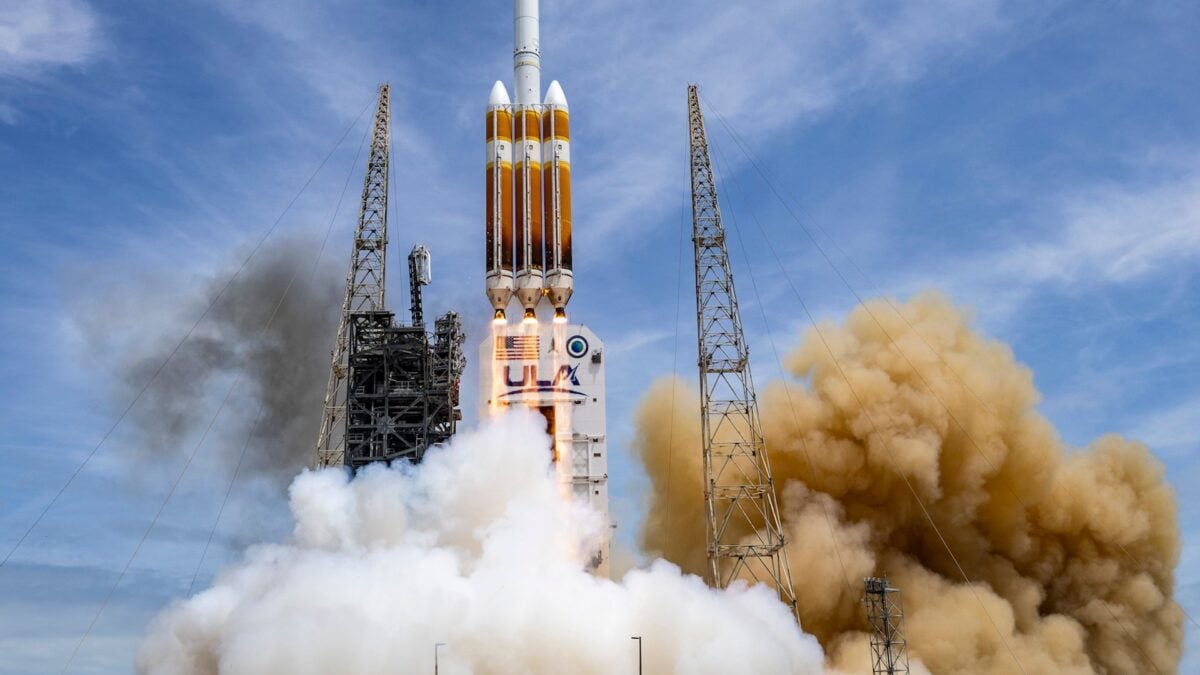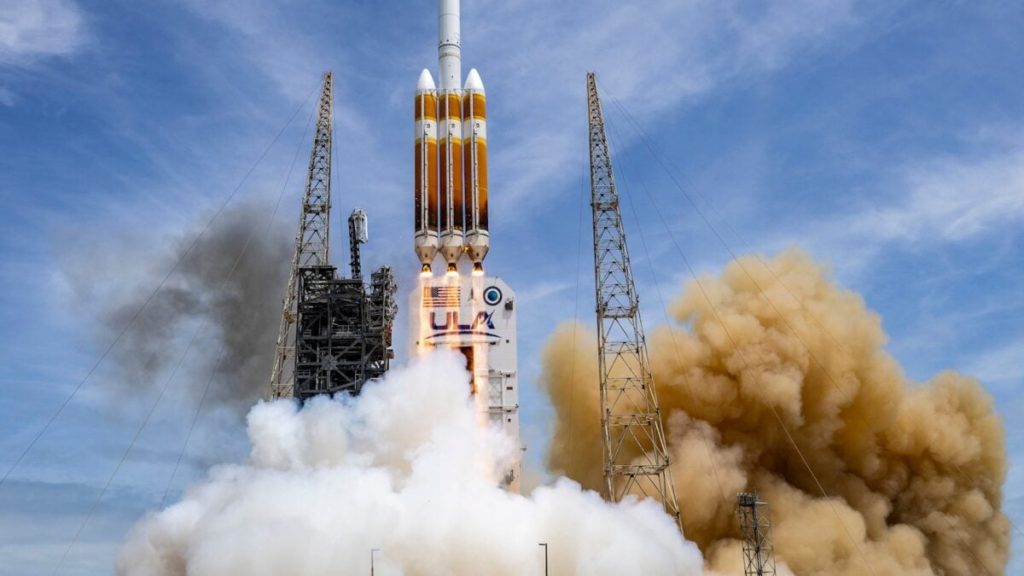A little over a year ago, United Launch Alliance (ULA) launched its final Delta IV Heavy rocket from Space Launch Complex-37 (SLC-37). It was the end of an era for the heavy-lift rocket and the historic launchpad that helped it reach the skies. This week, SLC-37 will be demolished and repurposed for Starship, further cementing SpaceX’s lead over its biggest rival.
Federal agencies, led by the Department of the Air Force, approved SpaceX’s proposal to take over SLC-37 at Cape Canaveral, Florida, deciding that the company’s launchpad addition would not have a significant negative impact on its industry competitors, Ars Technica reported. Ground crews are expected to begin disassembling the launchpad, removing structures used by the Delta IV rocket to make way for two 600-foot-tall (180-meter) launch integration towers for Starship.
SLC-37 was built in the 1960s to support the Apollo program. The launchpad, one of the largest at Cape Canaveral, hosted Saturn I and Saturn IB through the 1960s, and Delta IV from 2002 until the rocket retired last year. Since then, the launchpad has sat vacant, with SpaceX applying to take it over in early 2024. SpaceX wants to use SLC-37 for launch and landing operations of its fully reusable Starship-Super Heavy system.
The company currently relies on its launch mount at Starbase in Boca Chica, Texas, to test its Starship rocket. The move shows that SpaceX is looking to expand launch operations of its megarocket to Florida’s Space Coast. It also signifies the company’s major advantage as an industry leader, taking over a prime spot at Cape Canaveral. SpaceX’s expansion is concerning for other players in the industry. Last year, Blue Origin issued a public comment to the Federal Aviation Administration (FAA), suggesting that the regulatory body limit the number of launches of SpaceX’s Starship rocket from Launch Complex-39A at Kennedy Space Center (KSC) in Florida out of concern for the surrounding area.
SpaceX’s takeover of a military launchpad also comes at a time when the company’s founder, Elon Musk, is beefing with the U.S. administration. After Musk departed from his position in the government and ended his toxic relationship with Donald Trump, the messy breakup led to the president threatening to cancel SpaceX’s government contracts. The federal government is, however, overly reliant on SpaceX as an industry leader with the most reliable rocket, the Falcon 9, and the only U.S.-owned spacecraft capable of delivering astronauts to the International Space Station.
It’s clear by now that the government can’t easily part ways with SpaceX, as it hands over more launch structures to the company.




